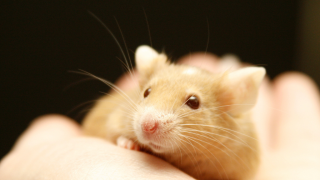This week as we spare a thought for sufferers of motor neurone disease, or ALS as it is known in the US, beware of funding pointless animal research.
Motor Neurone Disease and Lou Gehrig’s disease (known as Amylotrophis lateral sclerosis (ALS) in the US) is a rare condition that affects about two in 100,000 people, usually adults over the age of 40. ALS sufferers experience destruction of the cells in the brain that are responsible for controlling movement. This can lead to difficulties in walking, speaking, swallowing and even breathing.
However, despite extensive use of animals in ALS research, the exact cause of the disease remains unknown and there is still no cure.
ALS is a uniquely human condition and animals are artificially induced to have some aspects of the disease. To date, not one animal experiment has been able to reproduce all of the features of ALS.
The most commonly used animals are genetically modified (GM) mice, who are bred to possess specific genes known to cause ALS. These mice develop some symptoms similar to human ALS, including paralysis so severe that they can no longer eat or drink properly, leading to weight loss and death. However, unlike human ALS, most of the mice actually die as a result of blockages in their guts.
Importantly, the majority (95%) of human ALS cases are actually sporadic with no clear genetic cause. This means that these cruel studies in GM animals are of extremely limited value to the huge majority of ALS sufferers. Furthermore, the most popular GM mouse used in most ALS drug tests (known as ‘SOD1’) mimics a type of genetic ALS that only accounts for 2% of cases in humans.
Over the past decade, approximately a dozen drugs have been tested on countless animals and got through to clinical trials for ALS. Yet all of these drugs have failed in humans except for Riluzole, which only has minimal benefit.
The unreliable nature of using GM mice was demonstrated recently when researchers at the ALS Therapy Development Institute in America retested some of the drugs used in these failed clinical trials in GM mice again and found that this time they also failed (1).
This ALS research underlines that animal experiments are both cruel and unreliable. Instead, using cells and tissues from ALS patients is considered the 'gold standard' for studying this very human disease (2).












